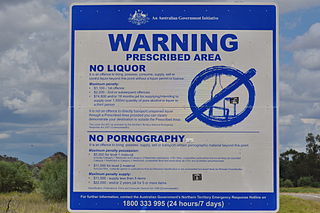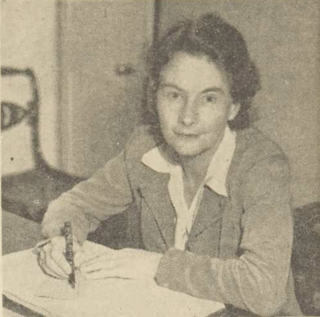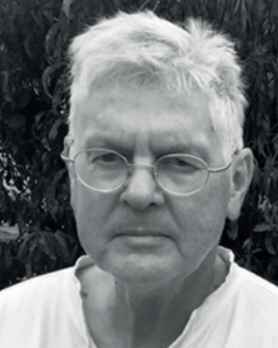
Marcia Lynne Langton is an Aboriginal Australian writer and academic. As of 2022 she is the Redmond Barry Distinguished Professor at the Melbourne School of Population and Global Health, University of Melbourne. Langton is known for her activism in the Indigenous rights arena.
William Edward Hanley Stanner CMG, often cited as W.E.H. Stanner, was an Australian anthropologist who worked extensively with Indigenous Australians. Stanner had a varied career that also included journalism in the 1930s, military service in World War II, and political advice on colonial policy in Africa and the South Pacific in the post-war period.
An outstation, homeland or homeland community is a very small, often remote, permanent community of Aboriginal Australian people connected by kinship, on land that often, but not always, has social, cultural or economic significance to them, as traditional land. The outstation movement or homeland movement refers to the voluntary relocation of Aboriginal people from towns to these locations.
The Bennelong Society was a conservative think-tank dedicated to Indigenous Australian affairs. The society was named after the Eora man Bennelong, who served as an interlocutor between the Indigenous Australian and British cultures, both in Sydney and in the United Kingdom almost from the start of British settlement of Australia in 1788. It was affiliated with conservative commentators in debates on Indigenous affairs. The society was established to:

Helen Dolly Hughes was an Australian economist. She was Professor Emerita at the Australian National University, Canberra, and Senior Fellow at the Centre for Independent Studies, Sydney. Hughes has been described as Australia's greatest female economist.
Indigenous Australian self-determination, also known as Aboriginal Australian self-determination, is the power relating to self-governance by Aboriginal and Torres Strait Islander peoples in Australia. It is the right of Aboriginal and Torres Strait Islander peoples to determine their own political status and pursue their own economic, social and cultural interests. Self-determination asserts that Aboriginal and Torres Strait Islander peoples should direct and implement Aboriginal and Torres Strait Islander policy formulation and provision of services. Self-determination encompasses both Aboriginal land rights and self-governance, and may also be supported by a treaty between a government and an Indigenous group in Australia.

The Northern Territory National Emergency Response, also known as "The Intervention" or the Northern Territory Intervention, and sometimes the abbreviation "NTER" was a package of measures enforced by legislation affecting Indigenous Australians in the Northern Territory (NT) of Australia, which lasted from 2007 until 2012. The measures included restrictions on the consumption of alcohol and pornography, changes to welfare payments, and changes to the delivery and management of education, employment and health services in the Territory.

Phyllis Mary Kaberry was a social anthropologist who dedicated her work to the study of women in various societies. Particularly with her work in both Australia and Africa, she paved the way for a feminist approach in anthropological studies. Her research on the sacred life and significant role of the Aboriginal women of Australia proved to be a controversial topic, as anthropology during her years of early fieldwork was male-dominated, filled with the misconceptions that men were the superior in any aspect of life. Contributing proof of women's significance to societal development and organisation, Kaberry can be defined as an influential and significant anthropologist.

Peter Sutton FASSA is an Australian social anthropologist and linguist who has, since 1969, contributed to: recording Australian Aboriginal languages; promoting Australian Aboriginal art; mapping Australian Aboriginal cultural landscapes; and increasing societies' general understanding of contemporary Australian Aboriginal social structures and systems of land tenure.
Fay Gale AO was an Australian cultural geographer and an emeritus professor. She was an advocate of equal opportunity for women and for Aboriginal people.
David Howe Turner is a professor of Anthropology at the University of Toronto, and a Fellow at Trinity College and the Netherlands Institute for Advanced Study. He has worked with Indigenous Australians since 1969 and has worked with indigenous peoples in Bali, North India, Japan, and Canada. At Toronto, his main area of focus is comparative religion and the role of music in the indigenous societies of Australia, North America, Africa, and India.
Barrie Graham Dexter was an Australian senior diplomat and public servant in the Department of External Affairs and the Department of Aboriginal Affairs.

Robert H. Layton is a British anthropologist and Fellow of the British Academy. He is Emeritus Professor of Anthropology at Durham University. He has carried out fieldwork in rural France and in a number of Aboriginal communities in Australia, and recently on traditional craft in rural China. Robert Layton studied anthropology at University College London under the famous Australian anthropologist Phyllis Kaberry. He completed his DPhil under the supervision of F.G. Bailey at the University of Sussex. He is known for his eclectic approach to anthropology and diverse range of interests. He has written extensively about art, archaeology, the evolution of hunter-gatherer society and culture, the co-evolution of genes and culture, social change and anthropological theory. He was the recipient of the Royal Anthropological Institute's Rivers Memorial Medal for a substantive contribution to anthropology in 2003

Thomas Edwin Calma,, is an Aboriginal Australian human rights and social justice campaigner, and 2023 senior Australian of the Year. He is the sixth chancellor of the University of Canberra, a post held since January 2014, after two years as deputy chancellor. Calma is the second Aboriginal or Torres Strait Islander person to hold the position of chancellor of any Australian university.
Bruce Rigsby was an American-Australian anthropologist specializing in the languages and ethnography of native peoples on both continents. He was professor emeritus at Queensland University, and a member of both the Australian Anthropological Society and the American Anthropological Association.

The Australian Hall is a heritage-listed community building located at 150-152 Elizabeth Street, in the Sydney central business district, in the City of Sydney local government area of New South Wales, Australia. It was the site of the Day of Mourning protests by Aboriginal Australians on 26 January 1938. It was also known as the Cyprus Hellene Club. The property is owned by the Indigenous Land Corporation, a statutory corporation of the Australian Government. It was added to the Australian National Heritage List on 20 May 2008 and was added to the New South Wales State Heritage Register on 2 April 1999.
Charles Dunford Rowley was an Australian public servant and academic.
Lynette Wendy Russell, is an Australian historian, known for her work on the history of Indigenous Australians; in particular, anthropological history ; archaeology; gender and race, Indigenous oral history, and museum studies.
Paul Christopher Memmott is an Australian architect, anthropologist, academic and the Director of the Aboriginal Environments Research Centre at the University of Queensland. He is an expert on topics related to Indigenous architecture and vernacular architecture, housing, homelessness and overcrowding.
Robert Tonkinson is a retired Australian anthropologist. He was born in Perth, Western Australia. He was the Ronald M. Berndt foundation Professor of Anthropology, University of Western Australia, Nedlands, 1963–1981 and Emeritus Professor of Anthropology, University of Western Australia, Crawley, West Australia.







